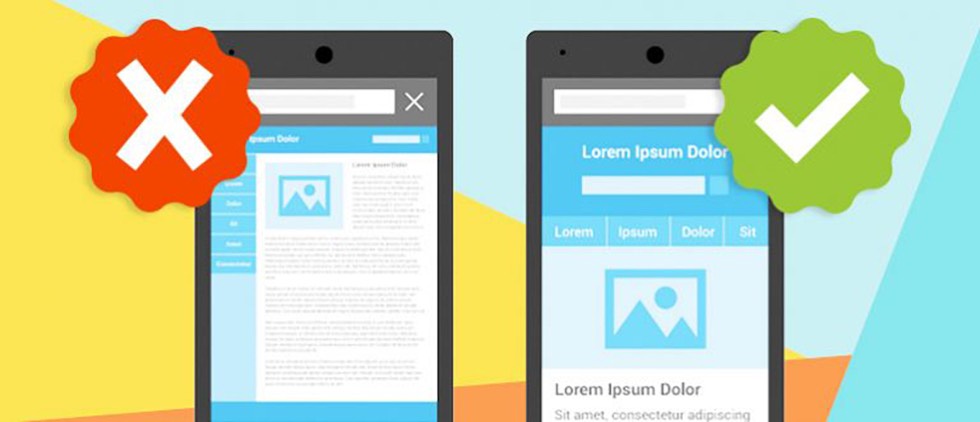Is “Mobilegeddon” Cause for Panic? Opportunity for Healthcare Brands in the New Google Update

Don’t fear Mobilegeddon.
Despite its slightly tongue-in-cheek apocalyptic epithet, “Mobilegeddon” is, simply, Google’s roll-out of its “mobile-friendly update.” And while it’s likely to have a big impact – and healthcare brands will have to respond – it’s not cause for panic. In fact, taking a more measured approach may even represent opportunities for insurers, hospitals and other healthcare companies.
First, what exactly is “Mobilegeddon”?
Starting this week, Google is implementing the latest change to its search ranking algorithm: when a user searches on a mobile device, Google will boost the ranking of mobile-friendly pages. This is to avoid the frustrations we’ve all experienced when we use our smartphones or tablets and end up on sites not optimized for mobile. Google wants its new approach to mobile search to help users “more easily find high-quality and relevant results where text is readable without tapping or zooming, tap targets are spaced appropriately and the page avoids unplayable content or horizontal scrolling.”
If you haven’t yet made it a priority to build a responsive website (“responsive” is one way of optimizing a site for mobile devices), it’s unlikely your site will be considered mobile-friendly by Google (if you want to assess individual pages, Google has a test for that). And if your site is not optimized for mobile, it won’t rank as high in mobile search as it once did. Mashable puts it more bluntly: “Be mobile-friendly or get buried in search results.”
So, yes – you’re going to need to make your online presence a lot more mobile.
Now, here’s the “don’t panic” part:
- These changes do not affect your Google search rankings from the desktop. You probably already have a sense of the volume of mobile traffic coming to your site – if not, you can get a good idea following this path: Google Analytics > Audience > Mobile. That’s the portion of your potential audience that will be affected. You’ll want to monitor the analytics, but in the short-term, you already have an idea about the size of the impact of “Mobilegeddon” on your specific site.
- The changes apply to individual pages. Not only can you work to optimize one page at a time if you like, but you can prioritize the pages already most popular with mobile devices.
- Google will automatically crawl and index pages. If you’ll be considering your mobile effort a work-in-progress, pages will be picked up by Google as you go along.
- Your site will not be invisible in mobile search either way and may even still rise to the top. This isn’t a “get out of jail free” card for “Mobilegeddon” (you still must address responsiveness on your site), but Google’s FAQs about its mobile-friendly update has some good news for you: “While the mobile-friendly change is important, we still use a variety of signals to rank search results. The intent of the search query is still a very strong signal – so even if a page with high quality content is not mobile-friendly, it could still rank high if it has great content for the query.”
- You’re not alone. Although it’s going to be changing quickly, at this moment, it’s unlikely that every one of your competitors is fully optimized for mobile.
Feeling a little less frenzied about it? Good! While we do recommend getting started right away, you have time to pull your team together and/or consult your agency and make your changes strategic instead of reactive.
When you do so, you may be able to visit (or revisit) some key opportunities:
- It’s always a good idea to create a top-notch user experience. And that’s really what the Google update is about: a better mobile experience. As you address the responsiveness of your site, take time to focus on the user experience of all digital assets from all touchpoints. It’s important to note here that the mobile version of a site doesn’t have to be a miniature copy of the desktop version. When evaluating your user experience, remember that the intent of a visitor on a mobile device may differ from those visiting via the desktop. Information can (and should be) prioritized for each experience.
- Identify areas where mobile can give you an advantage over your competitors. As we mentioned above, not all of your competitors have mobile-friendly sites, and certainly not all of them have fully-actualized mobile strategies. By optimizing key pages – maybe those with ER wait times if you’re a hospital or those with telehealth offerings if you’re a health plan – you may not only make your current patients and members more satisfied but you may find an even bigger audience for your pages.
- Make sure that there’s a mobile component to your upcoming campaigns. As you roll-out new initiatives or approach important times of year (open enrollment for health plans, for example), build mobile-friendly microsites, landing pages and other content into those campaigns. Even if you haven’t managed a full web overhaul by these deadlines, you can implement a mobile strategy to boost effectiveness of upcoming efforts.
- Don’t overlook member and patient communications. Examine your strategy for communicating with your most important audiences, including email. MediaPost reports that “mobile clicks now account for almost 40% of all email clicks, a 10% increase year-over-year.” Don’t make the mistake of using nonresponsive email… or sending those who open email on their devices to pages that aren’t optimized for mobile.
- Good content continues to be a strategic marketing asset. As Google explained in the FAQ we cited above, its goal remains to deliver users the highest quality content. If you’re not already implementing a proactive content marketing and SEO strategy, mobile optimization won’t be a magic bullet. But strong mobile content? That’s going to be highly effective, especially post-Mobilegeddon.
Want help sorting it all out? Contact our marketing and mobile experts today.






